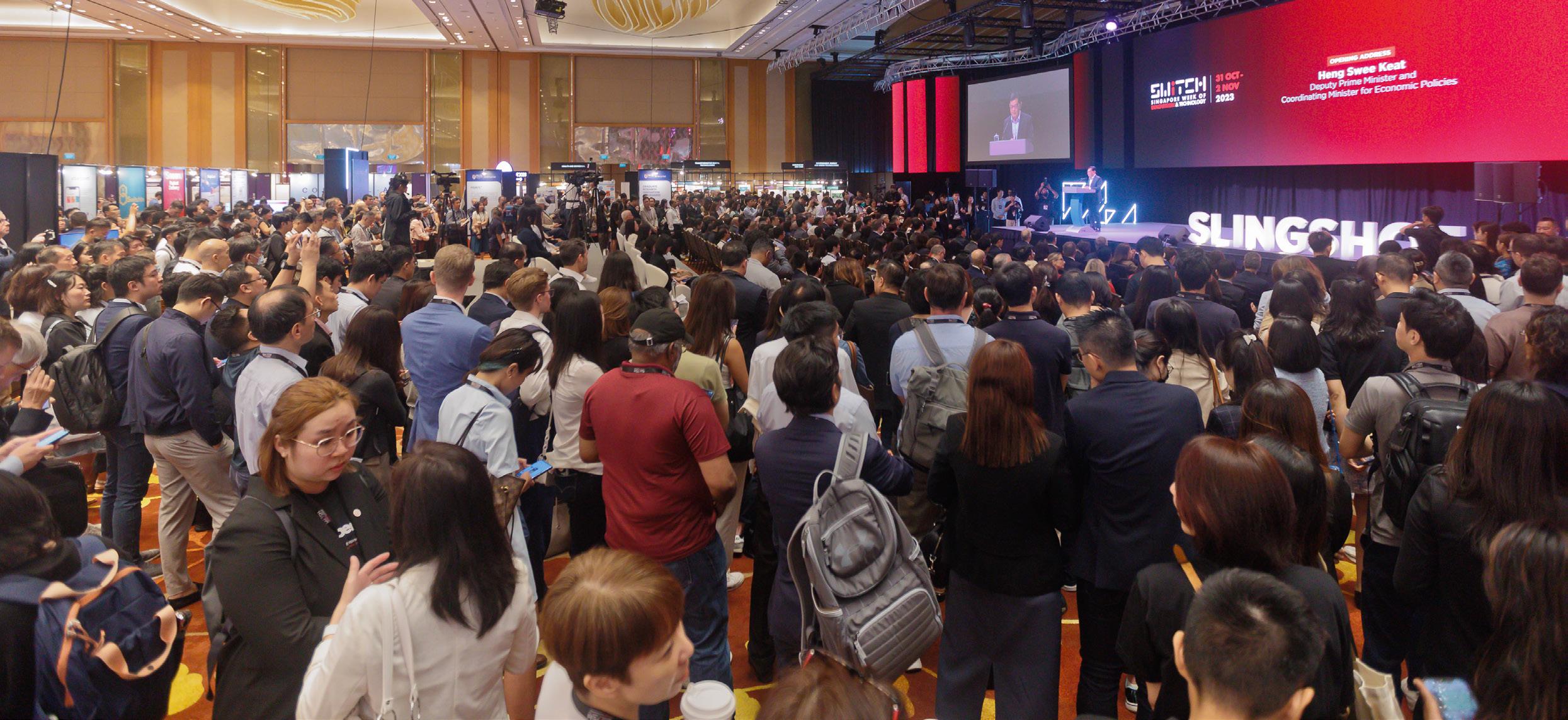

Editorial Team: Jennifer Toh
Joanne
Eileen Khoo
Tommy Lais
We
Contributors: Ashley Liew, Yvette Fernandez, Siti Nurain Binte Abdul Hamid, S Sevarenjeni



Editorial Team: Jennifer Toh
Joanne
Eileen Khoo
Tommy Lais
We
Contributors: Ashley Liew, Yvette Fernandez, Siti Nurain Binte Abdul Hamid, S Sevarenjeni
Dear readers,
The past quarter has been an eventful and reflective period for me. During a recent two-day New Joiner Orientation session, I met many inspiring individuals who had just joined NUS and attended a separate induction session where I met our new hires to NUS Enterprise as well. What struck me most was the unbridled curiosity in the room when we discussed innovation and entrepreneurship, and the intrinsic role that universities play in driving it.
As Singapore’s flagship university and leading global university centred in Asia, how do we ensure that NUS consistently delivers value to our students, staff, partners and most importantly, to Singapore? The intangible aspects of our impact hold immeasurable significance. Making a lasting difference is where our collective passion and intellect converge, reflecting our commitment to improving the world for ourselves and future generations.
With that, I am proud to share in this issue of Enterprise SPARKS that we celebrate the successful launch of our BLOCK71 Social Impact Hub. Opened in end-July, this is the new home for current and budding social enterprise start-ups that are part of our NUS Enterprise ecosystem.
To continually foster the growth of promising social ventures, we partnered with the Singapore Centre for Social Enterprise (raiSE) to launch the Technology for Sustainable Social Impact (TS2) accelerator programme. Seven start-ups in the inaugural cohort are developing tech-based solutions designed to benefit children with diverse learning needs, women entrepreneurs, the elderly, and others in our society.
Shifting into cybersecurity, we partnered with the Cyber Security Agency of Singapore to officially open the CyberSG Talent, Innovation and Growth (TIG) Collaboration Centre. Building on the good, pioneering work done under NUS Enterprise’s Innovation Cybersecurity Ecosystem at BLOCK71 (ICE71), this new space today serves as a nexus for the government,
academia and industry to come together to catalyse impactful initiatives in our cybersecurity ecosystem and workforce. Our partnerships with Plexal and SGInnovate will further support promising start-ups in the cyber domain.
Also in this issue, we feature fast-growing start-ups including PharLyfe+, Lingosnap and FingerDance PharLyfe+ has invented ready-made oral films to make taking medication safer, painless and more discreet. Lingosnap developed an AI-powered mobile app to personalise the language-learning experience for individuals, while FingerDance created SiLViA, or Sign Language Virtual Assistant to enable the Deaf and hardof-hearing communities in Singapore to access timely information and services when on the move.
I am immensely proud of our featured start-ups. They have gone beyond commercial interests and developed solutions that improve lives.
The future lies in our hands because our impact lies in what we choose to devote our time and effort, constantly and relentlessly. I truly believe that every individual can make a difference in the world.
Is it your turn yet?
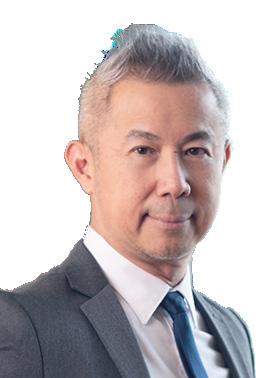



To foster the growth of innovative social ventures tackling social issues and environmental challenges, NUS Enterprise and the Singapore Centre for Social Enterprise (raiSE) have jointly committed S$3.5 million to support tech-based social enterprise (SE) start-ups in Singapore through the 10-week Technology for Sustainable Social Impact (TS2) accelerator programme.
This fund will nurture 16 promising social enterprise start-ups participating in the TS2 accelerator programme over the next two years, providing them with essential resources and comprehensive support. As part of this commitment, NUS Enterprise launched the BLOCK71 Social Impact Hub on 25 July 2024, a dedicated space designed to empower purposedriven ventures and amplify their impact.
Anthony Chua, Chief Executive Officer of StratifiCare, a medtech social enterprise start-up under the TS2 accelerator programme, speaking to the audience about the development StratifiDen™, a severe Dengue prediction test that determines the risk of severe Dengue development.
Active Silvers, a digital wellness platform that aims to bring inclusive health and fitness solutions to elderly-related communities and care centres, demonstrates how their technology improves the quality of life for older persons.



The TS2 accelerator programme supports growth stage start-ups that adopt social enterprise models, with varying levels of technological engagements – ranging from deep tech to light and low tech. The programme, which held its first run from end-April to July 2024, combines a structured curriculum and a customised development plan tailored to the needs of each participating start-up.
TS2 accelerator programme start-ups also enjoy access to mentors, investors, and impact professionals, who will help them scale and amplify their social impact. These start-ups will also gain access to overseas markets and commercial opportunities by leveraging BLOCK71’s offices in nine cities across the globe.
Associate Professor Benjamin Tee, NUS Vice President (Ecosystem Building), said,
Our collaboration with raiSE supports more purposedriven ventures with essential resources and further fosters an entrepreneurial ecosystem dedicated to positive social impact. The TS2 accelerator programme expands upon our experience in nurturing technology start-ups to social impact endeavours. This new initiative, along with the establishment of BLOCK71 Social Impact Hub is our commitment to develop innovations that achieve greater social impact via entrepreneurship.

At the Demo Day on 25 July 2024, which was opened by Professor Chen Tsuhan, NUS Deputy President (Innovation & Enterprise), the TS2 accelerator programme’s inaugural cohort of seven start-ups showcased their social impact technologies which focused on human-centred social impact innovations. The seven start-ups are Active Silvers, MADCash, MangaChat, School On Cloud, StratifiCare, GoTechUp and FingerDance
Describing the benefits of the TS2 accelerator programme, Mr Lionel Choong, co-founder of Active Silvers shared, “The programme has helped us in many facets of our business, from practical decision-making skills to scaling our impact.” This sentiment was echoed by other participants, who lauded the mentorship, and resources provided which helped them to refine their approaches and expand their reach.
Professor Chen Tsuhan, NUS Deputy President (Innovation & Enterprise), opened the Technology for Sustainable Social Impact (TS2) Accelerator Programme Demo Day.


The TS2 accelerator programme is the latest addition to NUS Enterprise’s continued efforts to support purpose-driven start-ups. Since 2011, NUS has incubated and supported close to 400 societal impact start-ups, of which 70 per cent address human-centred social impact issues and 30 per cent focus on environment and sustainability.
To further nurture the next generation of social impact startups, NUS Enterprise has also established the BLOCK71 Social Impact Hub to provide a dedicated space for purpose-driven ventures that address issues pertaining to societal well-being and environmental sustainability.
The hub offers a suite of services that support and accelerate impact ventures including tailored capacitybuilding programmes, mentorship services, and global networking opportunities. Pioneer occupants of
this new hub comprise the seven start-ups from the inaugural TS2 cohort, as well as start-ups from NUS Enterprise social impact ecosystem.
Four start-ups from the NUS Enterprise social impact ecosystem also showcased their products at the opening of the BLOCK71 Social Impact Hub. The four start-ups were Cityscape Farms, the moonbeam.co, Boost VitaliTEA and Creo.Works.
Reflecting on his journey so far, Mr Kong Qi Herng, co-founder of the moonbean.co (or the moonbeam company) remarked,


The BLOCK71 Social Impact Hub is a dedicated space for start-ups that address issues pertaining to societal well-being and environmental sustainability.
NUS Enterprise has provided platforms that created opportunities for us to learn from seasoned entrepreneurs. Through these engagements, moonbeam has enhanced our capabilities and expanded our professional network to grow our business and collaborate with other businesses. We are excited to continue this partnership, driving positive change and fostering innovation.
To ensure the continued success of TS2 startups, NUS Enterprise and raiSE are planning the next iteration of the TS2 accelerator programme, set to be announced in the third quarter of 2024, as well as follow-up support for the recently graduated first cohort. This includes developing a comprehensive postaccelerator support system, featuring targeted expert peer learning sessions and strategic mentoring check-ins. The continued support will further empower startups to address critical

social and environmental challenges, driving positive change both locally and globally.
The TS2 accelerator programme and the BLOCK71 Social Impact Hub represent NUS and raiSE’s shared commitment to fostering a vibrant community of social entrepreneurs. As these start-ups continue to grow and evolve, they pave the way for a future where technology and social impact go hand-inhand, addressing some of the most pressing issues facing society today.
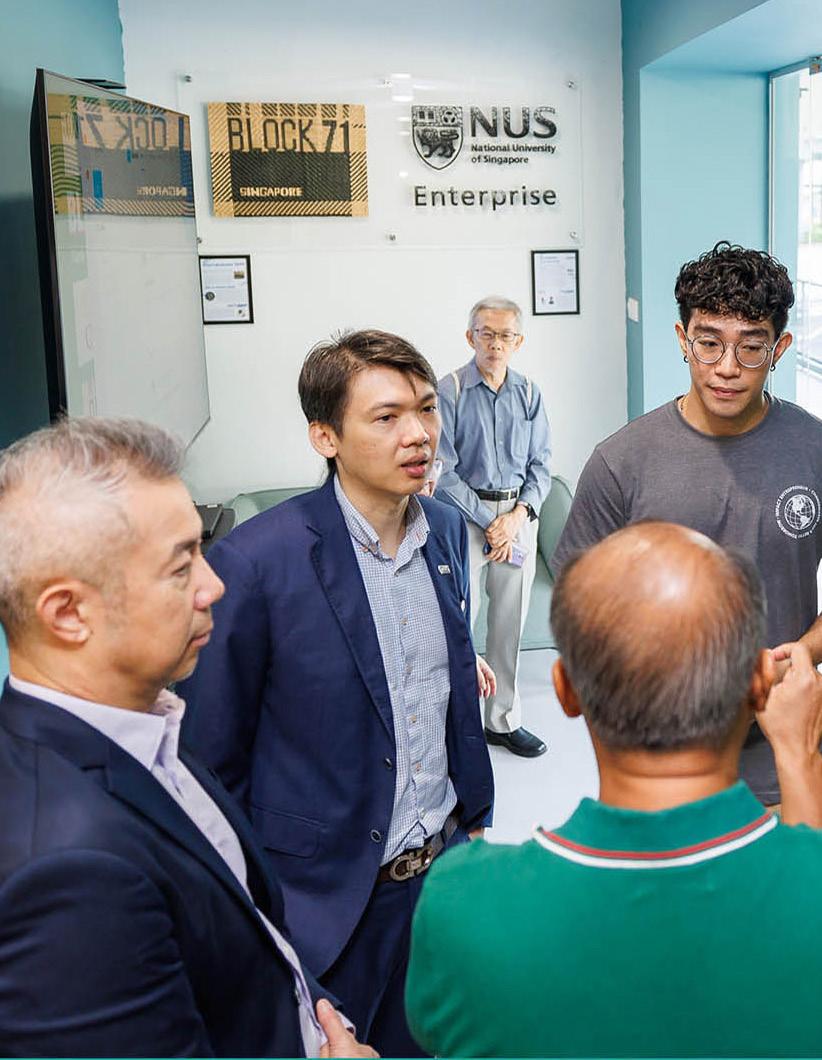
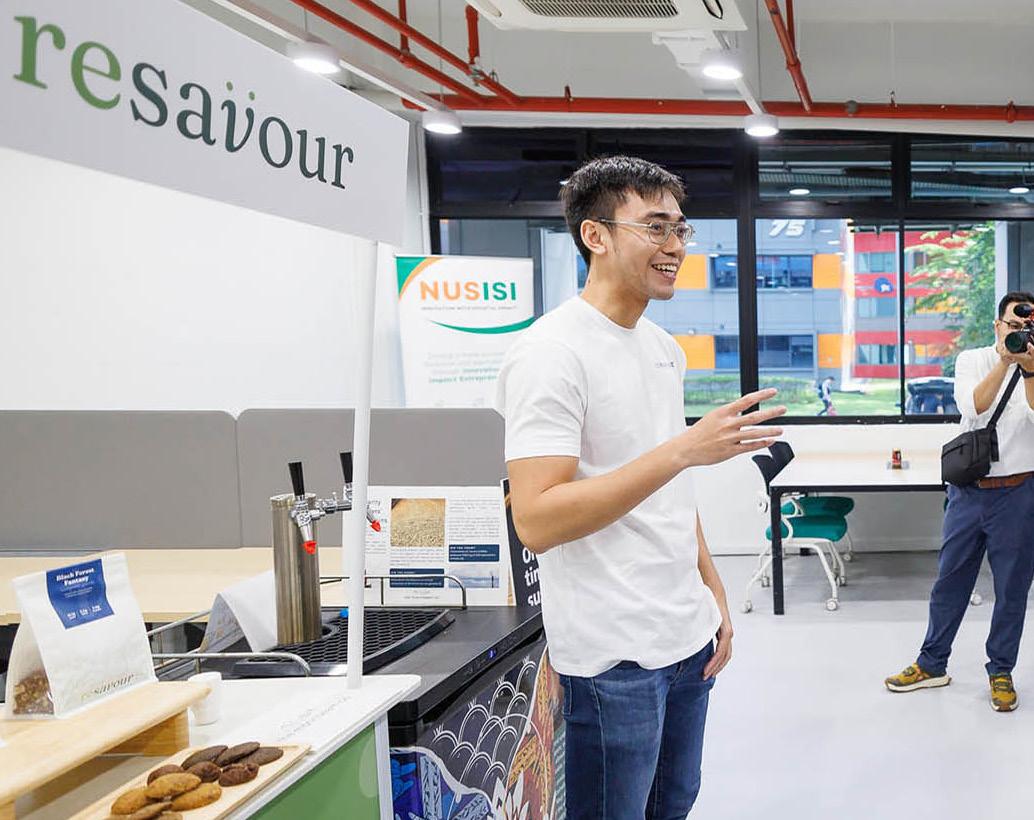

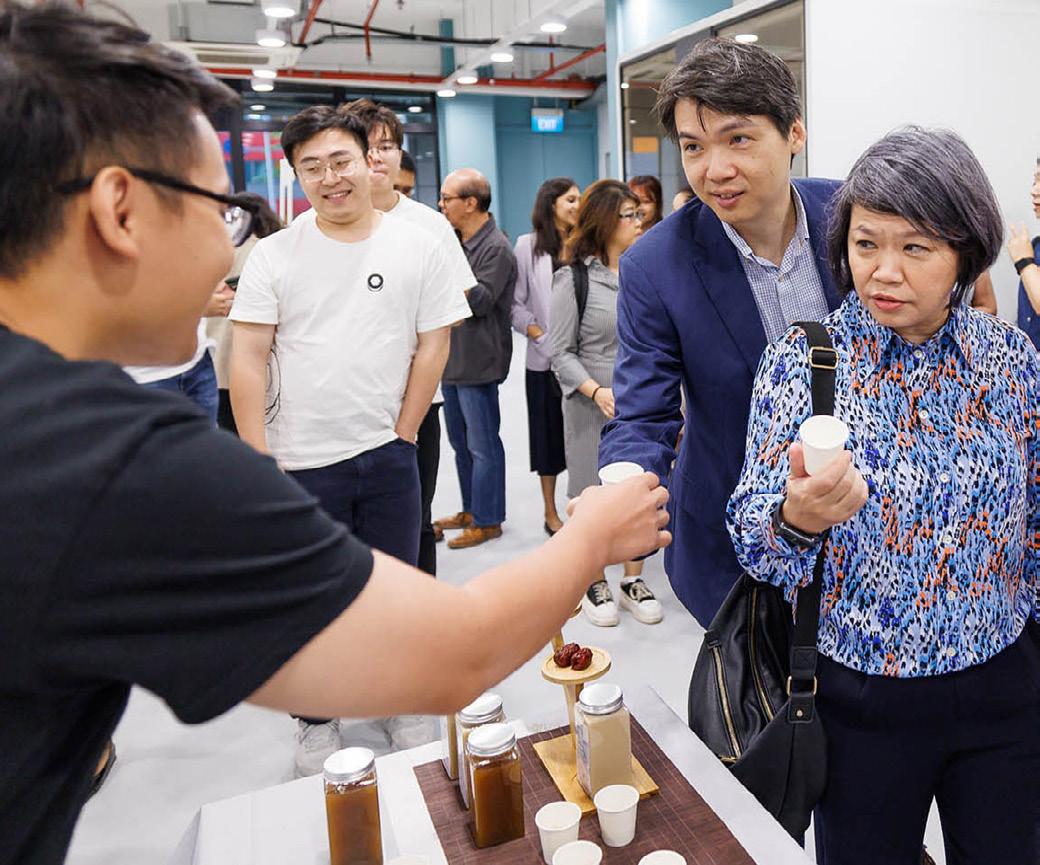
VitaliTEA revolutionalises the approach to mental well-being by integrating Traditional Chinese Medicine with modern lifestyle choices.

Singapore is poised to strengthen its position as a global cybersecurity leader with the launch of the CyberSG Talent, Innovation and Growth (TIG) Collaboration Centre, a strategic partnership between the Cyber Security Agency of Singapore (CSA) and NUS.
The Centre, located at LaunchPad @ one-north, was officially opened on 15 July 2024, with Dr Janil Puthucheary, Senior Minister of State, Ministry of Digital Development and Information gracing the occasion as Guest-of-Honour. In his address, Dr Puthucheary stressed the importance of cybersecurity for Singapore’s national security amid increased digitalisation and as a critical enabler for the nation’s digital economy and way of life, with people spending more time online and being increasingly reliant on online services. Given these factors, growing and investing in the local cyber talent pool is the only way for Singapore to stay ahead of everevolving threats, he noted.
First announced in September 2023, as a joint initiative between CSA and NUS, the Centre serves as a nexus, bringing government, academia, and industry together to catalyse impactful initiatives in the cybersecurity sector and leverage opportunities posed by digitalisation.
“With government, industry and academia working together over the years, our cybersecurity ecosystem and workforce have grown. Today, we are home to more than 500 cybersecurity providers. Constant innovation is vital in the cyber domain to counter new threats and grow new businesses,” he added.
Cyber Security Agency of Singapore and NUS opens CyberSG Talent, Innovation and
Centre, a new hub to drive
Professor Benjamin Tee, NUS Vice President (Ecosystem Building)
The Centre’s strategic initiatives are structured around three core pillars: Talent, Innovation, and Growth. On Talent, it aims to cultivate a diverse talent pool equipped with the skills to apply cybersecurity capabilities across various industries and functions. The Centre is dedicated to training a critical mass of professionals with advanced cybersecurity expertise.
The Innovation pillar aims to co-innovate with the industry to bridge the gap from innovation to commercialisation, nurturing promising cybersecurity companies for Singapore and the region. Under this pillar, the Centre will be rolling out several programmes such as this year’s Cybersecurity Industry Call for Innovation (CyberCall) to drive the development of innovative cybersecurity solutions.
In addition, the Centre has also introduced the CyberBoost programme that provides tailored support for cybersecurity companies in their venture creation journeys, helping them develop, validate, and scale their solutions in Singapore and beyond.

For the third pillar on Growth, the Centre aims to enable cybersecurity companies anchored in Singapore to scale regionally and globally. The core programme, CyberGrowth, is a dedicated cybersecurity-focused export programme that facilitates the expansion of promising cybersecurity companies and leverages NUS Enterprise’s BLOCK71 incubation hubs in Southeast Asia, East Asia, and the USA.
In his opening speech, NUS President Professor Tan Eng Chye highlighted how the Centre will build on the good, pioneering work done under NUS Enterprise’s Innovation Cybersecurity Ecosystem at BLOCK71 (ICE71) in the next phase.
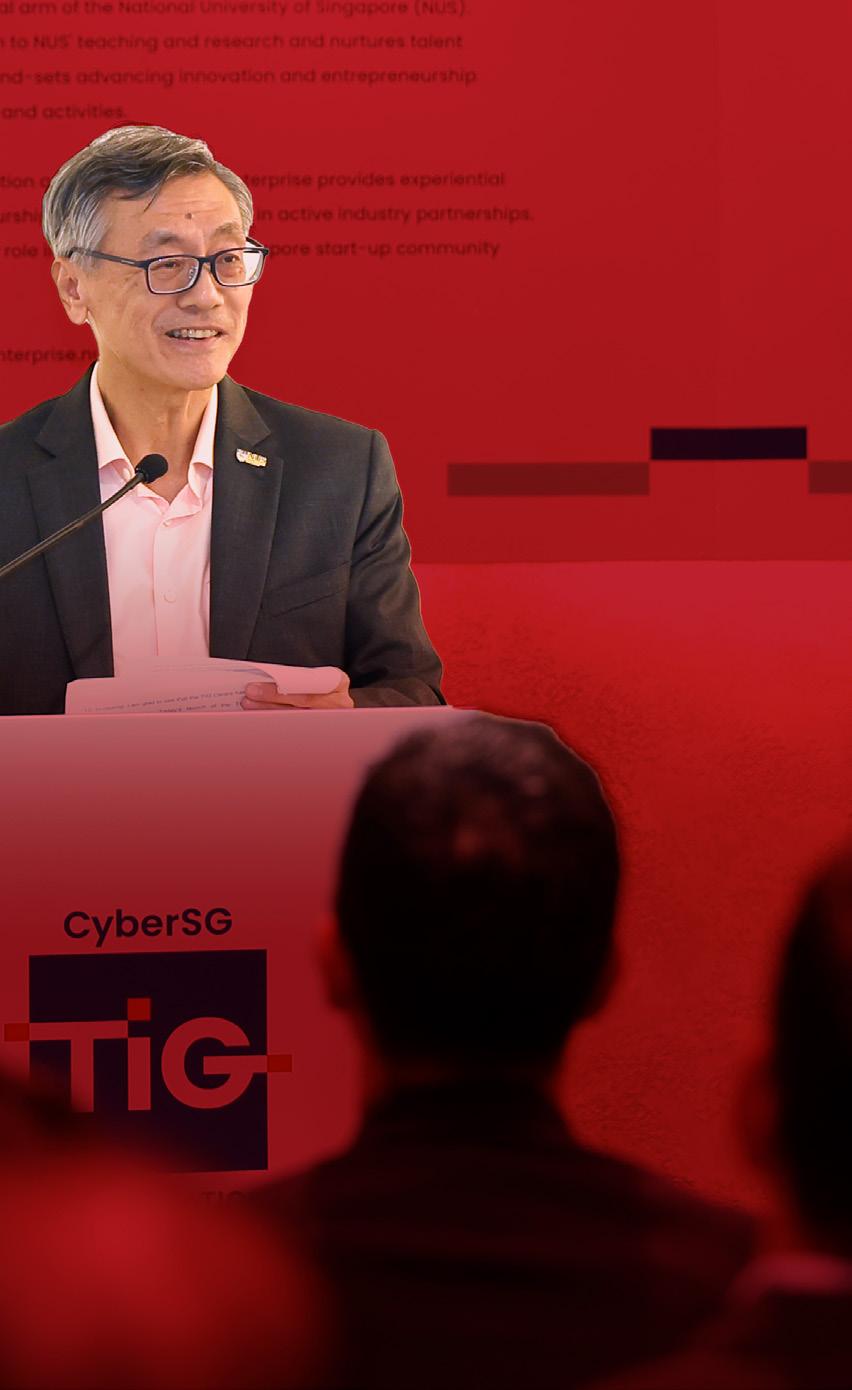

NUS and Plexal exchanged Memorandum of Understanding agreements to drive innovation and growth in Singapore’s cybersecurity ecosystem. In the photo (from left): Mr Saj Huq, Chief Commercial Officer and Head of Innovation, Plexal; Dr Janil Puthucheary, Senior Minister of State, Ministry of Digital Development and Information; Associate Professor Benjamin Tee, NUS Vice President (Ecosystem Building)
“ The CyberSG TIG Collaboration Centre endeavours to support more cyber companies to establish their presence in Singapore, to develop Singaporebased cybersecurity products, and to help Singapore-based cyber companies to scale up and to access markets. The overall aim is to deepen cybersecurity capabilities, build a thriving cybersecurity ecosystem, and to strengthen Singapore’s defence against cyber threats,”
– NUS President Professor Tan Eng Chye delivering the opening speech at the CyberSG TIG Collaboration Centre.
To enhance the effectiveness and reach of the Centre, NUS has also forged strategic partnerships through
Memorandum of Understanding (MOU) agreements with local investor SGInnovate and UK-based innovation company Plexal, to drive innovation and growth in Singapore’s cybersecurity ecosystem. NUS will partner SGInnovate to support earlystage start-ups through mentorship and providing resources to help them scale. Additionally, the University and Plexal will co-deliver the CyberBoost Catalyse programme to help cybersecurity companies develop their growth strategies and scale their business footprints through extensive network access in the UK and USA. Emphasising the importance of the Centre and its industry partnerships, Associate Professor Benjamin Tee, NUS Vice President (Ecosystem Building) said, “We are excited to mark the official opening of the CyberSG TIG Collaboration Centre. NUS Enterprise is committed to continue pushing the boundaries of innovation
and entrepreneurship to develop a thriving cybersecurity innovation ecosystem from Singapore. This Centre will synergise and leverage the combined expertise and resources of academia, industry, government, local and international industry partners. Our partnerships with Plexal and SGInnovate are a step forward to further support promising start-ups that drive global innovation and business opportunities towards a more secure digital future in Singapore and beyond.”
Highlighting Plexal’s contribution, Mr Saj Huq, Plexal’s Chief Commercial Officer and Head of Innovation said,“. As a UK-based innovation company that is recognised for its governmentled innovation programmes, Plexal will co-deliver the CyberBoost Catalyse programme to provide cybersecurity companies support to develop their growth strategies, and to scale business footprints in Singapore and high-growth global markets in the UK and US.”
Mr Hsien-Hui Tong, Executive Director – Investments at SGInnovate, noted that this collaboration is crucial for fostering innovative national cybersecurity leaders. By working closely together, the two organisations will ensure that early-stage cybersecurity start-ups and emerging talent can access essential resources and opportunities throughout their development within the tech ecosystem, he added.

The partnership between NUS and SGInnovate will support early-stage start-ups with mentorship and resources to help them scale. In the photo (from left): Mr Hsien-Hui Tong, Executive Director – Investments, SGInnovate; Dr Janil Puthucheary, Senior Minister of State, Ministry of Digital Development and Information; Associate Professor Benjamin Tee, NUS Vice President (Ecosystem Building)
Three hundred aspiring entrepreneurs from 31 universities in 22 countries gathered in Singapore from 8 to 19 July 2024 for the NUS Enterprise Summer Programme in Entrepreneurship 2024, sharing the same spirit of sportsmanship, camaraderie, and excellence.

TEO ZHI SEN, a Year 4 Engineering Science student from the NUS College of Design and Engineering, had the unique opportunity to witness the behind-thescenes planning and participate in this programme as a student ambassador. As a student ambassador, Zhi Sen took charge of a group of ten students of different nationalities, providing support and assistance when needed, and facilitating a smooth and enjoyable experience for participants during the programme.
He pens his reflections on this twoweek journey here, which he says offered a fresh perspective on entrepreneurship through the lens of cultural immersion and experiential learning.



The NUS Enterprise Summer Programme in Entrepreneurship 2024 emphasised creating experiences that build collaboration through play, offering participants a unique blend of sports, games, and group activities designed to uncover their personal and collective strengths.
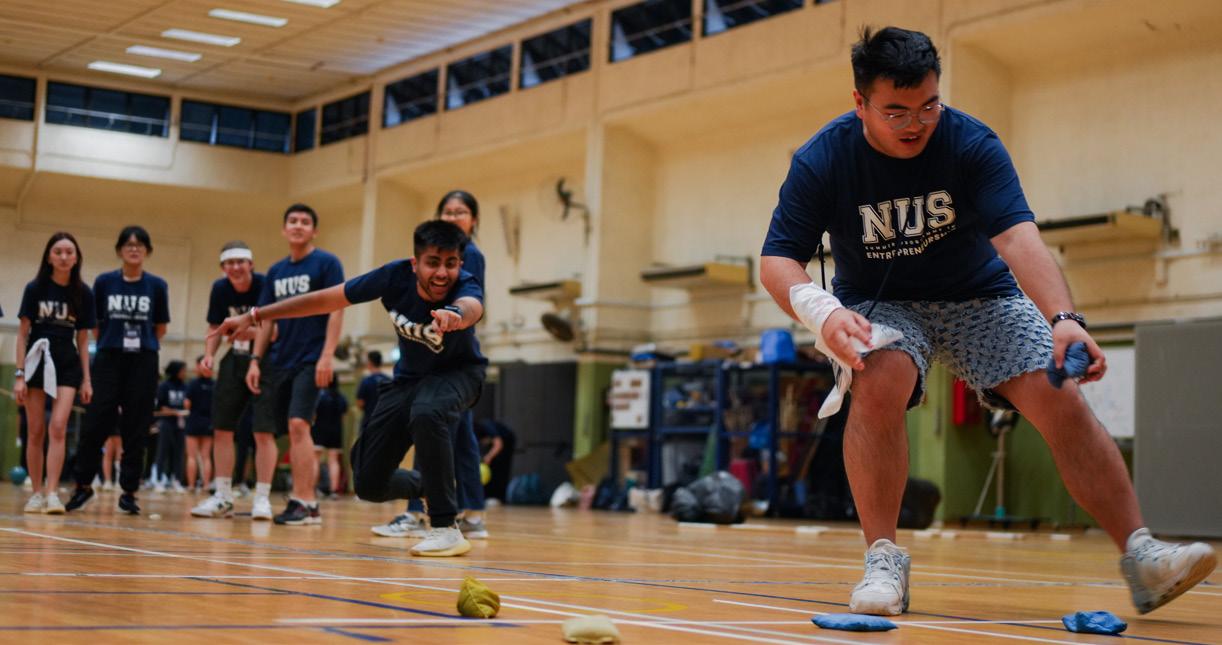

The programme kicked off with the Amazing Race of Champions, an exhilarating adventure that took us on a whirlwind tour across Singapore, setting a vibrant and energetic tone for the days to come. As we raced through the city, we were not just exploring Singapore’s culture and heritage, we were also building connections with fellow participants in a fun and engaging way. Together with other team-building activities like traditional dances, language workshops, and crafts from various ASEAN countries, I witnessed my groupmates’ creativity, social skills, and problemsolving abilities come to life - qualities that are often hidden in formal settings. The experience was more than just fun and games, it helped us reflect on our strengths and areas for improvement. Through these shared experiences, we gained invaluable insights into each other’s working styles and learned to navigate the complexities of diverse group dynamics. With lessons that will prepare us for the challenges of future leadership roles, the programme was a journey of self-discovery and growth, far beyond what was initially expected.
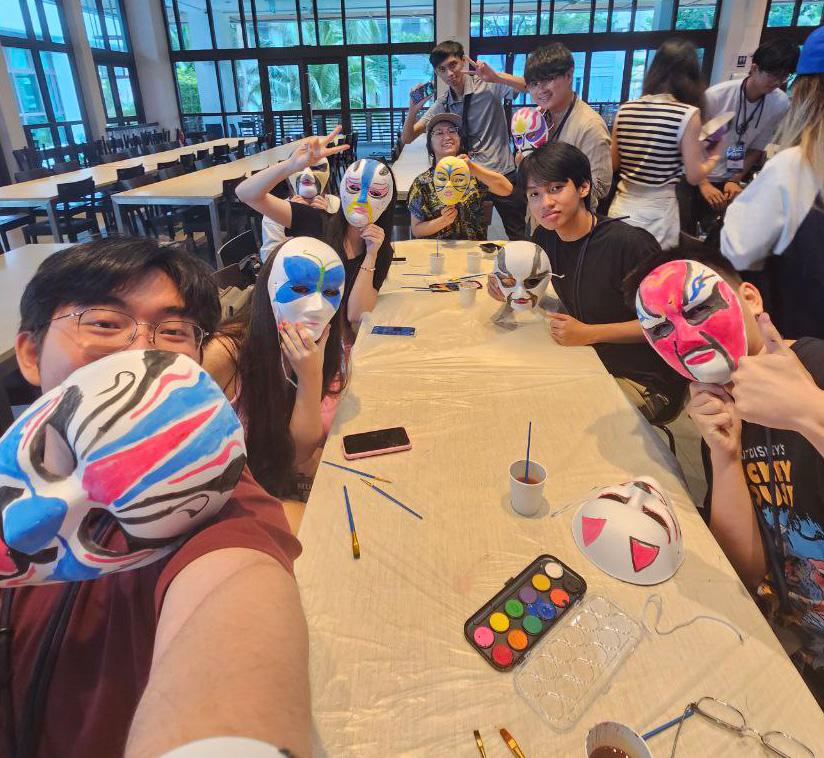
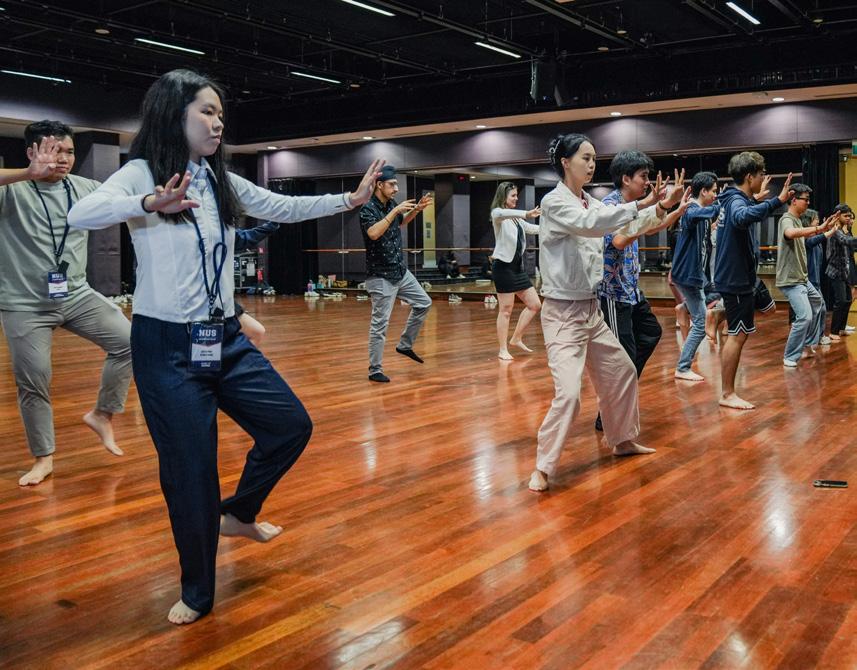
The ASEAN cultural day activities featured traditional face mask painting (top) and immersive dance lessons (bottom).
A key focus of this year’s programme was to deep dive into the ASEAN region. We explored the rich cultural heritage and dynamic economic landscape of Southeast Asia – from learning how to create traditional Indonesian Batik and the basics of the Thai language, to understanding the regional economic growth projections. It was eye-opening to see the opportunities and challenges in this rapidly evolving market, which is projected to become the world’s fourth-largest economy by 2030. This cultural immersion was educational and reinforced the importance of appreciating and respecting diverse backgrounds, a crucial skill in today’s globalised world.
The pitch sessions were among the most challenging yet rewarding aspects of the programme. Focused on innovative yet sustainable solutions, groups of participants collaborated to present their start-up ideas to industry experts. My team and I worked on an ambitious project – an application that provides fashion recommendations to customers. The journey was intense, filled with brainstorming sessions in the wee hours of the day that tested our clarity, confidence, and composure; but the words of Mr Kris Childress, a seasoned mentor at NUS Enterprise – “Concise pitches are key to captivating investors” – became our mantra as we honed our presentation skills. We were also fortunate to receive guidance from Ms Laina Greene, Founder and CEO of Angels of Impact, who helped to fine-tune our problem statement, making the final pitch even more compelling.
As pitch team leader, my goal was to make sure everyone learns from this process and builds on their
strengths. Leveraging my teammate’s understanding of consumer behaviour, I assigned her the market research role due to her sociology background. Overall, I made sure that each member was able to learn something and apply their knowledge. This experience highlighted the collaborative nature of entrepreneurship and taught us the value of clear communication and adaptability. Personally, I also learnt how to inspire my team and adapt to different working styles, fostering a deeper understanding and curiosity about each person’s unique contributions. Keeping the energy up in the wee hours became an art form; I learnt that a well-timed joke and coffee can work wonders.
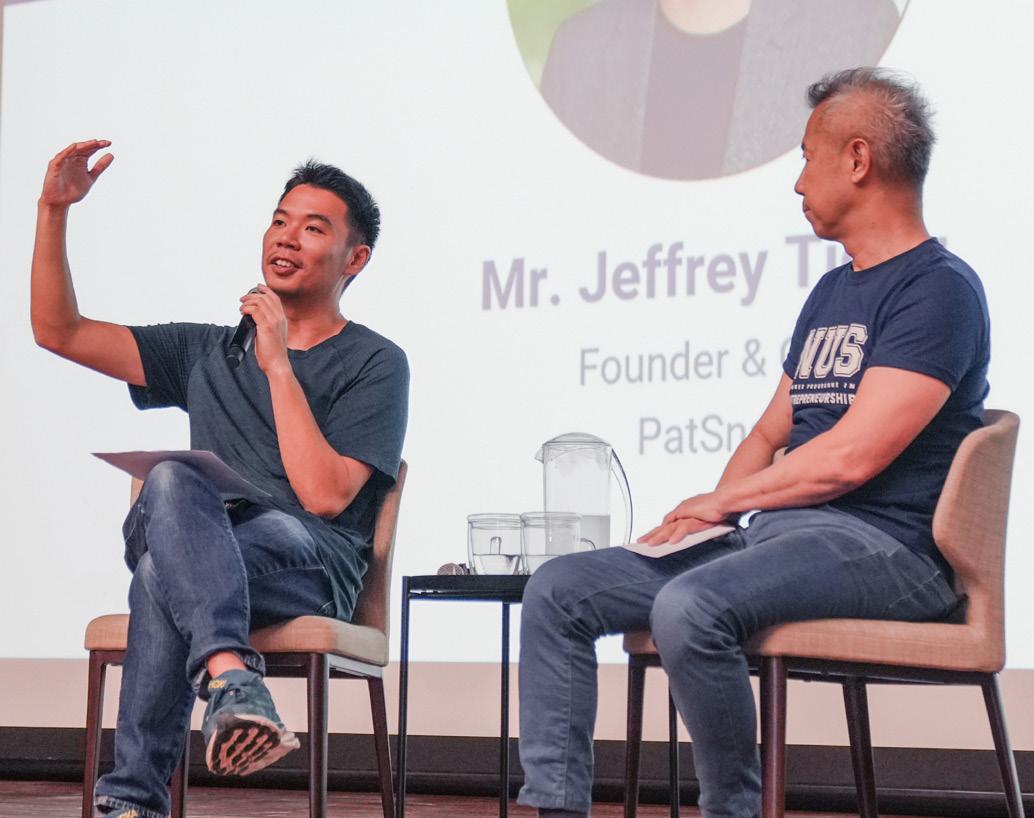
Mr Jeffrey Tiong (left), founder of PatSnap, sat down for a fireside chat on ‘The Journey of a Unicorn Founder’, moderated by Professor Chen Tsuhan, NUS Deputy President (Innovation and Enterprise).

Pitching their start-up idea to a

of

The fireside chats with distinguished alumni, including Mr Philip Yeo, Chairman of Economic Development Innovations Singapore and a prominent figure in Singapore’s public service, and unicorn founder Jeffrey Tiong of PatSnap, were another highlight. As they shared their stories of overcoming challenges and achieving success, we felt both inspired and motivated. Their journeys told similar stories of resilience and the importance of continuous learning in entrepreneurship.
One particular insight from Mr Philip Yeo resonated strongly with me – the art of effective delegation. He stressed that knowing who and how to delegate tasks is crucial as it leverages others’ strengths while maintaining good relationships and morale. Among the other memorable moments was the opportunity to tour the Singapore headquarters of Google, Alibaba and City Developments Limited. At Google, I learnt the value of an empowering work culture that prioritises work-life balance. The ripple effect on talent retention and valuing individuals were points I noted for when I work on my own business.
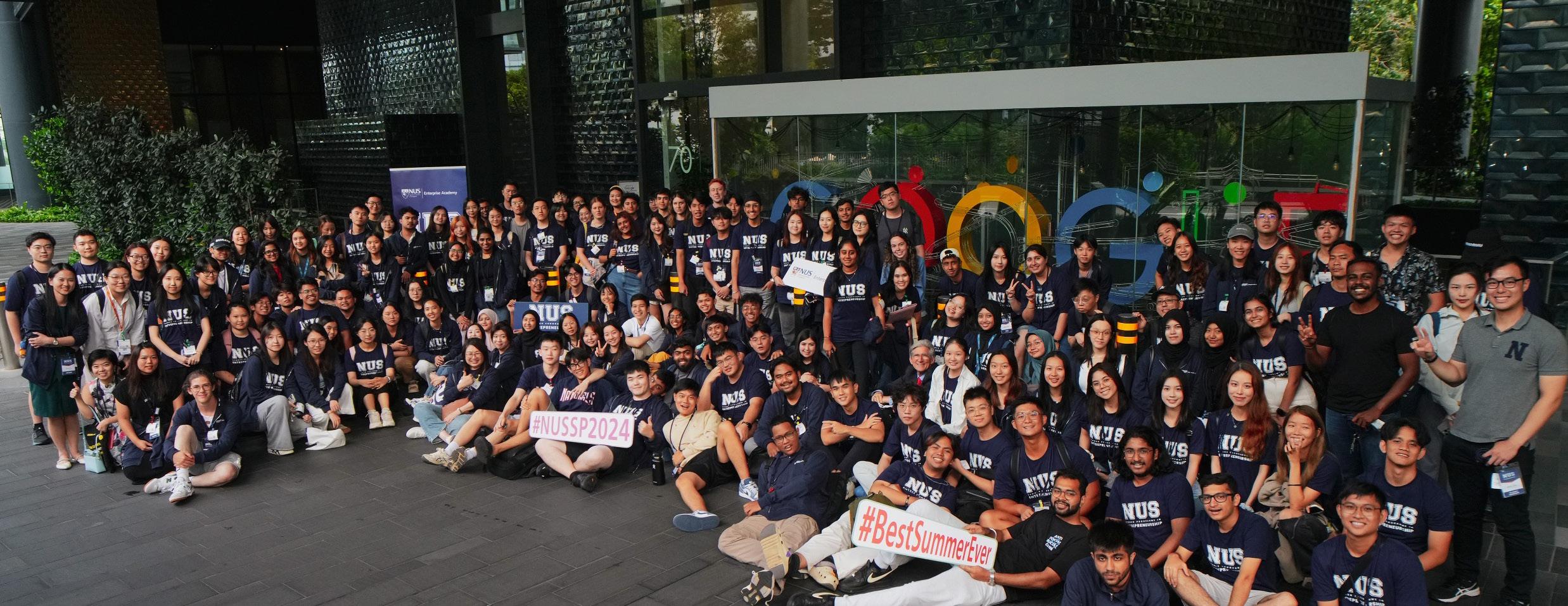

The impact of the two-week programme extended beyond technical knowledge into shaping our approach to entrepreneurship. It was more than just about how to start a business; it was about building the resilience and collaborative spirit needed to thrive in a competitive global marketplace.
The structure of the programme stands as a testament to the power of play in learning and personal growth. The experiences gained and the skills developed during this programme have set a high benchmark, preparing me for the challenges and opportunities ahead.
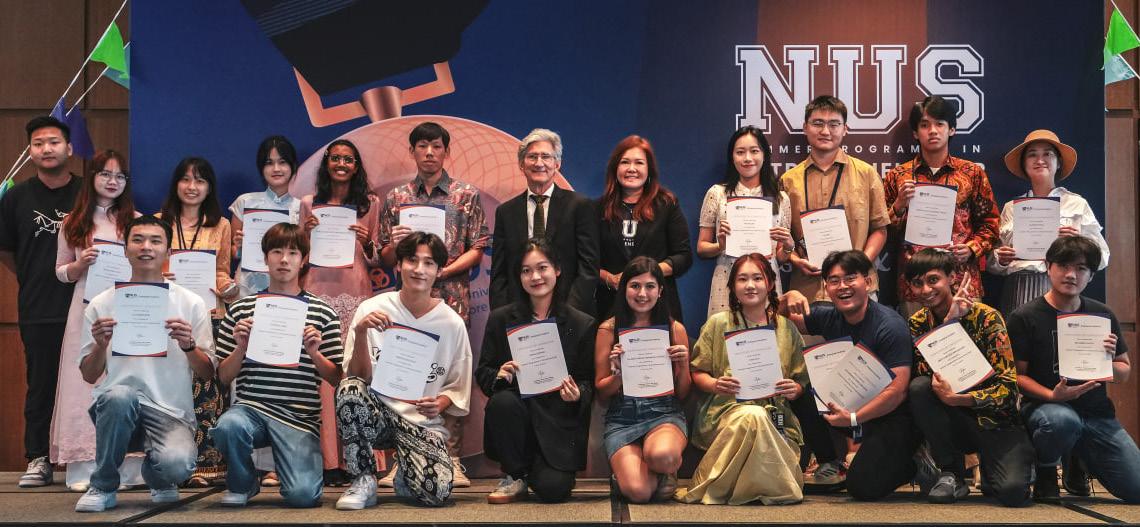

The fireside chat with Mr Philip Yeo on ‘The Power of Knowledge and Mentorship’ was moderated by Ms Koh Lin-Net, Director at the Centre for Impact Investing and Practices and Lead, Institutional Relations, at Temasek Trust.
For those considering becoming a student ambassador in future editions of the programme, my advice is to embrace the opportunity with an open mind and a collaborative spirit. The experience is not just about contributing to the programme’s success but also about learning and growing alongside a diverse group of talented individuals. The insights and friendships gained will be invaluable assets as you navigate your entrepreneurial journey.
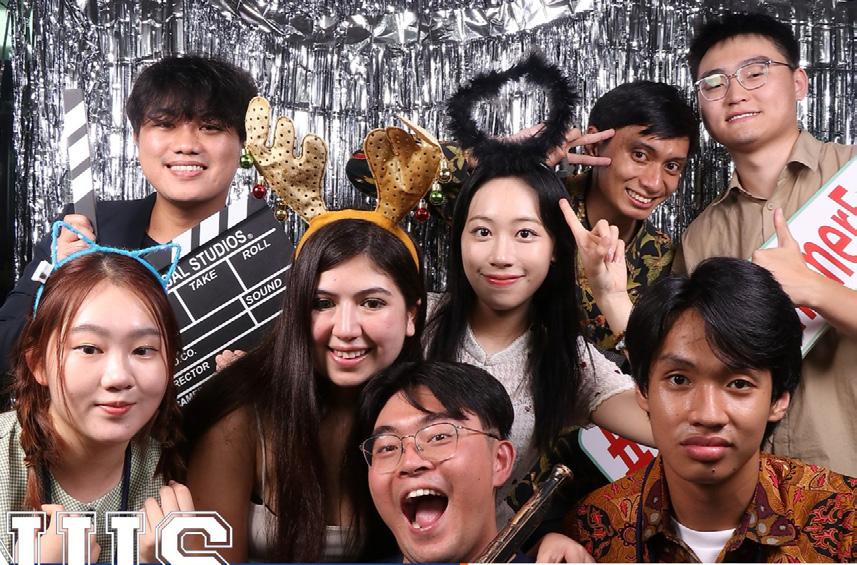
finale event.
NUS ENTERPRISE AT STUDENT LIFE FAIR 2024 INSPIRES STUDENTS TO VENTURE BEYOND COMFORT ZONES

Hardik Dobariya (second from left) moderated the Fireside Chat with fellow NOC alumni. Mr Tan Wee Liang (left), NOC Shanghai batch of 2019 and currently working as a lawyer at CNPLaw LLP; Mr Dexter Tay (third from left), Executive Director of CASE and a graduate from NOC Singapore; and Ms Goh Yiping (right), Partner at McKinsey & Company who graduated in 2005 from the second batch of NOC Philadelphia. They shared personal stories of resilience and invaluable lessons learnt from their NOC experiences.
“What’s the worst that can happen when you try something new?”
Hardik Dobariya, Co-founder of start-up, Factorem asked a crowd of over 100 eager undergraduates during the Fireside Chat at the NUS Student Life Fair 2024 (SLF), held at UTown from 14 to 16 August. With this thought in mind, students were encouraged to take risks and embrace new challenges, aligning with the Enterprise Academy’s new campaign slogan, ‘Do Something New Today.’ This theme, along with the exciting programme line-up of SLF, motivated students to step out of their comfort zones and discover the wide range of opportunities available at NUS, from academic programmes and student tech challenges to experiential learning initiatives.
A key highlight of the event was the ‘Do Something New Today’ Fireside Chat, featuring alumni from the NUS Overseas Colleges (NOC) programme. Moderated by Hardik Dobariya, alumnus of the NOC Toronto pioneer batch, the session delved deep into exploring the makings of an entrepreneurial mindset.
Drawing parallels to sports, NUS Vice President (Innovation and Enterprise), Professor Chee Yeow Meng set the tone by drawing a compelling analogy in his opening address. He explained that just as many people engage in sports for enjoyment rather than aiming to become professional athletes, students can adopt an entrepreneurial mindset not necessarily with the goal of starting a business, but to cultivate essential life skills. These skills, such as discipline, teamwork and resilience are invaluable, regardless of the career path one chooses, equipping students to navigate and excel in a rapidly changing world.

Staff from THE HANGAR field questions on their programmes from aspiring undergraduate entrepreneurs.
The discussion underscored the idea that embracing new challenges is fundamental to an entrepreneurial mindset.
Mr Hardik Dobariya, drawing on experience during his NOC days when the company he interned at went bankrupt, emphasised the value of resilience in the face of uncertainty.
Ms Goh Yiping, reflecting on her path from the second batch of NOC Philadelphia to becoming a Partner at McKinsey & Company, stressed the importance of building a strong professional network and continually seeking opportunities for growth. Together, the panellists encouraged the audience – majority first and second-year students - to adopt a solution-oriented approach, innovate within boundaries, and connect with like-minded individuals.
They conveyed a powerful message: whether in business or in life, risks and setbacks are inevitable, but the growth and rewards that follow are unparalleled.
Beyond the insightful sharing at the Fireside Chat, NOC and THE HANGAR by NUS Enterprise booths at SLF 2024 served as dynamic platforms to showcase their transformative programmes. The team at THE HANGAR and NUS Enterprise shared the wealth of support available for early-stage student projects and start-ups, including resources, hotdesking spaces, mentorships, and access to networking opportunities through community events and initiatives like the Student Entrepreneurship Community (SEC).
One such initiative that NUS students can take part in to immerse in entrepreneurial ecosystem and learn handson entrepreneurial skills is the upcoming Sustainable Development Goals (SDG) Open Hack @NUS that is part of the NUS E-SUS Challenge 2024, organised by NUS Enterprise, in collaboration with NUS Sustainability Office, SDG Open Hack by Global Green Economic Foundation, in conjunction with NUSOne initiative.
THE OVERARCHING MESSAGE OF SLF 2024 IS CLEAR: By daring to do something new today, students can cultivate a dynamic and resilient mindset that transcends academic boundaries and serves as a powerful foundation for any future career path.
This mindset of innovation, adaptability, and creative problemsolving not only equips students to navigate the challenges of the ever-changing world but also empowers them to drive meaningful change in whatever field they choose to pursue. So, what will be your ‘something new’ today?


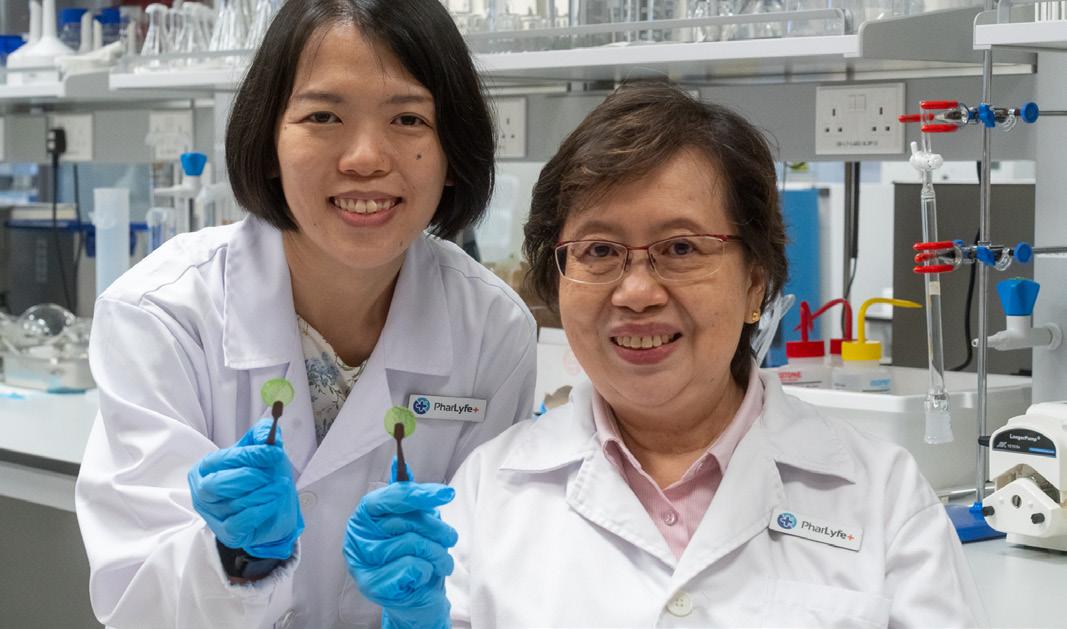
In the quest for a greener planet, PharLyfe+ is leading the charge in sustainable healthcare with their innovative medicated oral films. Founded by Associate Professor Dr. Chan Sui Yung, Honorary Fellow at the Department of Pharmacy and Pharmaceutical Sciences under the Faculty of Science, and Dr. Tan Poh Leng, this start-up is set on reducing the carbon footprint of the pharmaceutical industry.
Medications commonly given in the form of injections, pills, syrups, and inhalers produce a significant amount of pharmaceutical and biohazardous waste. The carbon emissions of global healthcare activities make up 4 to 5 percent of total world emissions, with the majority coming from industrialised countries. Some drugs and dosage forms have particularly high carbon footprints due to their complex manufacturing processes and the use of environmentally significant precursors that generate toxic and radioactive waste.
Additionally, aging populations and changes in disease patterns have increased healthcare carbon emissions. Practices like overprescription, antibiotic resistance and drug dependency significantly reduce the effectiveness of healthcare services and increase the overall cost of treatments.
“The pharmaceutical industry generates a lot of waste. Our goal is to create a simpler and greener way to deliver essential medication by eliminating the need for additional medical devices and bulky packaging and disposables,” explains Dr. Chan on the environmental benefits of their innovation. By replacing syrup bottles, tablet packaging and plastic injections with easy-to-administer oral films, PharLyfe+ significantly reduces medical waste. The medicated oral films require fewer ingredients and less energy to produce, making them an environmentally friendly alternative.
TAKING MEDICATION IS SAFER, PAINLESS AND MORE DISCREET THROUGH ORAL FIRMS
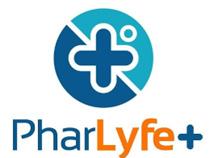
PharLyfe+ oral films come in 10 and 20-cent coin sizes and are designed to dissolve quickly in the mouth, providing a rapid onset of action without the need for additional administering device such as medicine spoons, cups, syringes or needles. This makes taking medication painless, safe and discreet for patients.
“Ongoing stability studies have demonstrated that our films have a shelf-life of at least 3 months,” explains Dr. Tan, “which is significantly more than the 14 days for traditional syrups.”
In addition to their longer shelf-life, these films provide a patient-friendly solution by catering to the specific needs of paediatric, geriatric, and palliative care patients who have
expand the reach of their innovative products within Southeast Asia and then globally. Currently targeting hospices, hospitals, clinics, and pharmacies, the team envisions creating a homebased kit where caregivers can compound and bake their films without the need for frequent hospital visits to collect medication.
Healthcare institutions can benefit from reducing their overhead costs for manpower, disposables, and biohazardous waste, while ensuring more efficient medication rounds and better patient compliance.
“Our goal is to transform the administration of medications, making it easier and more sustainable for healthcare providers and patients alike,” says Dr. Tan.
As pharmacists and mothers, we saw firsthand the stress and pain our children and elderly parents experienced with injections and pills. We knew there had to be a better way,
difficulty swallowing tablets, poor vascular access and cannot take injections. PharLyfe+ is significantly improving patient care, minimising the need for invasive and stressful medication-administration methods.
The inspiration behind PharLyfe+ medicated oral films come from the founders’ personal experiences. Dr. Chan and Dr. Tan saw the struggles patients faced with traditional medications and sought to find a better solution.
Their journey to find a solution began with the support from NUS Graduate Research Innovation Programme (GRIP), which helps postgraduates and researchers bring their deep tech innovations to market. The three founders enrolled in GRIP Run 8 and received funding in January 2023 before incorporating their start-up in February 2023.
Looking ahead, PharLyfe+ aims to
PharLyfe+ is also preparing to start clinical trials at two major hospitals and is actively seeking investors and pharmaceutical partners to grow.
As PharLyfe+ expands its reach and continues to push the boundaries of sustainable healthcare, their commitment to empowering patients with dignity and independence through their innovative, safe and painless medication solutions endures.
PharLyfe+ is a name to watch in the world of sustainable healthcare.
pharlyfeplus.com

As technology advances, the way we communicate and connect is undergoing significant transformation. Two standout innovators adapting technology to fit the evolution of communication are Lingosnap and FingerDance. Through advanced AI, Lingosnap is making language learning more engaging and interactive through usergenerated content while FingerDance is transforming information accessibility for the Deaf and hard-of-hearing. Both start-ups are making communication more inclusive, personalised and engaging, setting new standards in their respective fields.

Picking up a new language can be very challenging for people with different learning needs. Traditional language learning methods often rely on static curricula and rote learning, which can be disengaging and ineffective for many learners.
“
Lingosnap, a cutting-edge language learning app by Lalia Private Limited, is making waves in the world of education with the clever use of Generative AI. Lingosnap is designed to make learning languages more engaging and interactive. Through its innovative app, users can take photos of objects or landmarks of interest to them, which are then converted into vocabulary used in context of a sentence.
Additionally, the app colour-codes sentences to help Lingosnap users learn sentence structures and grammar rules. This method not only personalises the learning experience but also keeps users motivated by integrating their everyday experiences and interests into the language learning process.
Phang Wei Jun, CEO of Lingosnap, explained, “We want to make learning a new language as enjoyable as possible for the users so that they won’t feel the pain they had in the past through traditional methods.”
Setting a new standard for
language education by prioritising engagement and practicality, Lingosnap’s AI-driven features creates a learning environment that adapts to the learner’s individual experiences and preferences.
“ Our goal is to make language learning enjoyable and accessible for everyone.
– PHANG WEI JUN, CEO OF LINGOSNAP
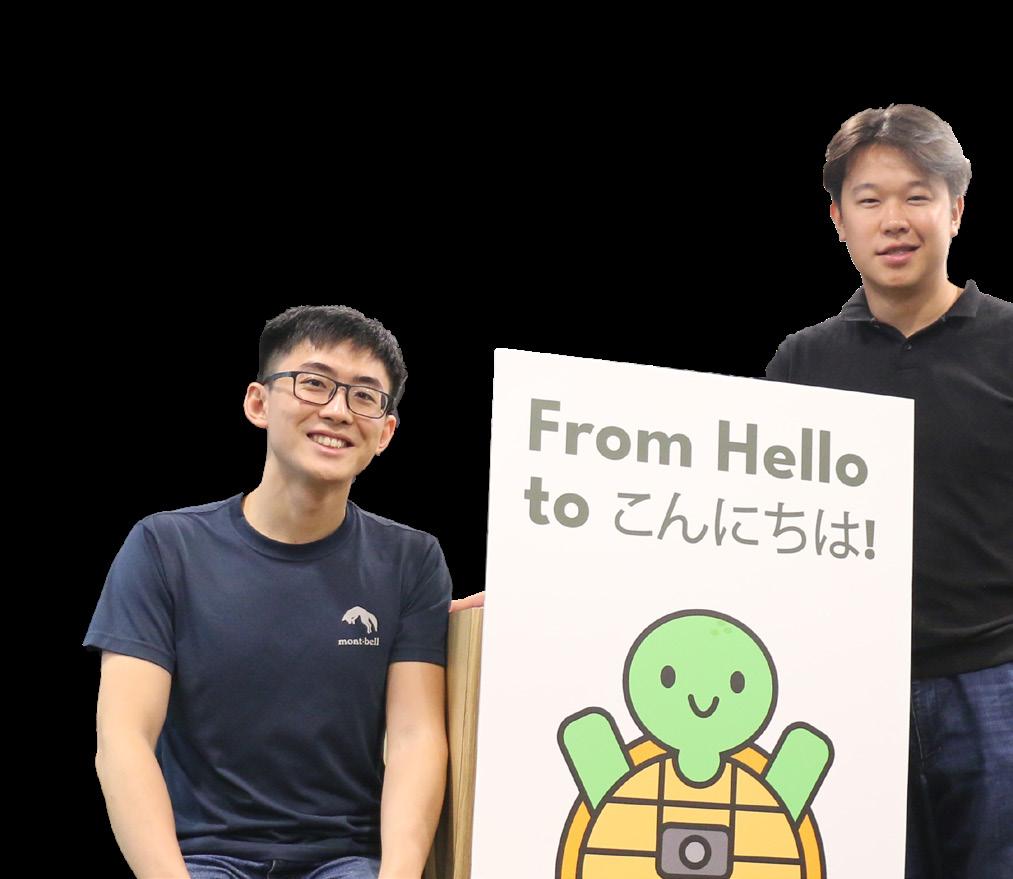
By using the technologies that we have today, we can give agency to the learner to customise their learning and make the experience more personal.
– FRANCIS LEE, CTO OF LINGOSNAP
SPEED-DATING WORKED FOR LINGOSNAP’S FOUNDERS
The founders, who met through a ‘speed dating’ session within the NUS Graduate Research Innovation Programme (GRIP), explored the idea for Lingosnap from shared personal struggles with language learning and a desire to solve learning roadblocks using technology. The session paired entrepreneurs with similar ideas and complementary skills to take the next steps in their entrepreneurial journey.
During the initial stages of their company, the founders visited schools in Japan, not just in major towns but also in rural areas, teaching English to children. Wei Jun recounted, “We travelled to a small
town east of Nagoya and climbed 30 minutes up a mountain to teach in a small school. When we got there, the children were learning English using Singapore landmarks. It was fascinating to see how excited they were when they understood the context of their learning through our presence there as Singaporeans. This experience made us realise the importance of ‘context’ in language learning and inspired us to create a tool that allows learners to create their own context to learn a language.”
This blend of experiences and motivations set the foundation for Lingosnap’s mission: to bridge the gap between struggling language learners and fluency.
Francis emphasised, “In the app, users can take pictures, which will be converted into vocabulary and learning points in their learning album. Over time, they can use these key phrases to practise, and we can generate more material with sentences or related vocabulary to interact with the material better.”
Starting a tech-driven language learning company comes with its challenges. The founders shared that the journey involved overcoming numerous hurdles, from product development to scaling the solution. They emphasised the importance of mentorship and collaboration within the NUS ecosystem, which helped them navigate the complexities of running a start-up. The diverse skill sets within their team - balancing technical and business expertisewere crucial in building a sustainable and scalable company.
Lingosnap has also benefitted from THE HANGAR, our on-campus
incubator, and the Generative AI Accelerate Programme launched by NUS Enterprise (through BLOCK71) and Microsoft. Francis noted, “No one can prepare you to be an entrepreneur. We received quite a bit of mentorship and workshops that gave us a crash course on all the jargon and technicalities of the company. We’re glad to have received support from the ecosystem, which we still benefit from today.”
Lingosnap is continuously evolving, with plans to add more languages in their suite and new features such as speaking practice, which will teach users how to speak naturally, modelled from native speakers. This feature, developed with insights from experienced language lecturers at NUS, aims to enhance users’ pronunciation and long-term retention, making the learning experience even more effective.
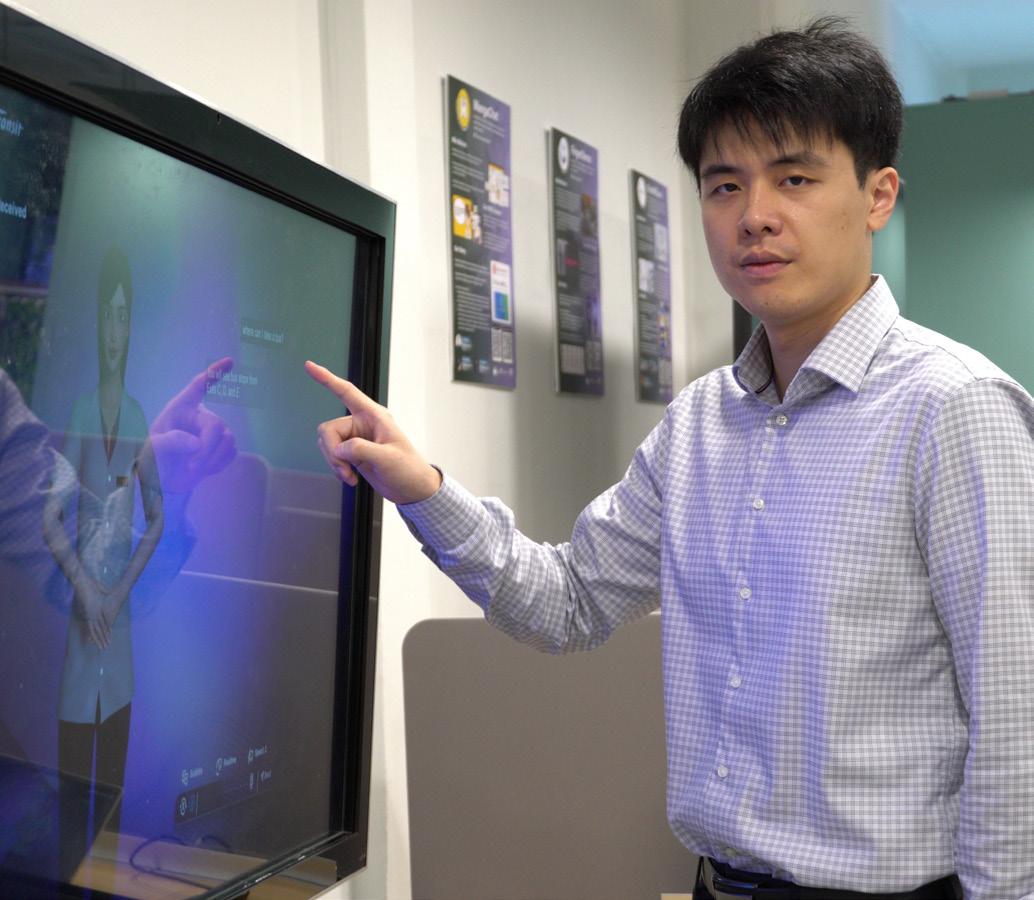
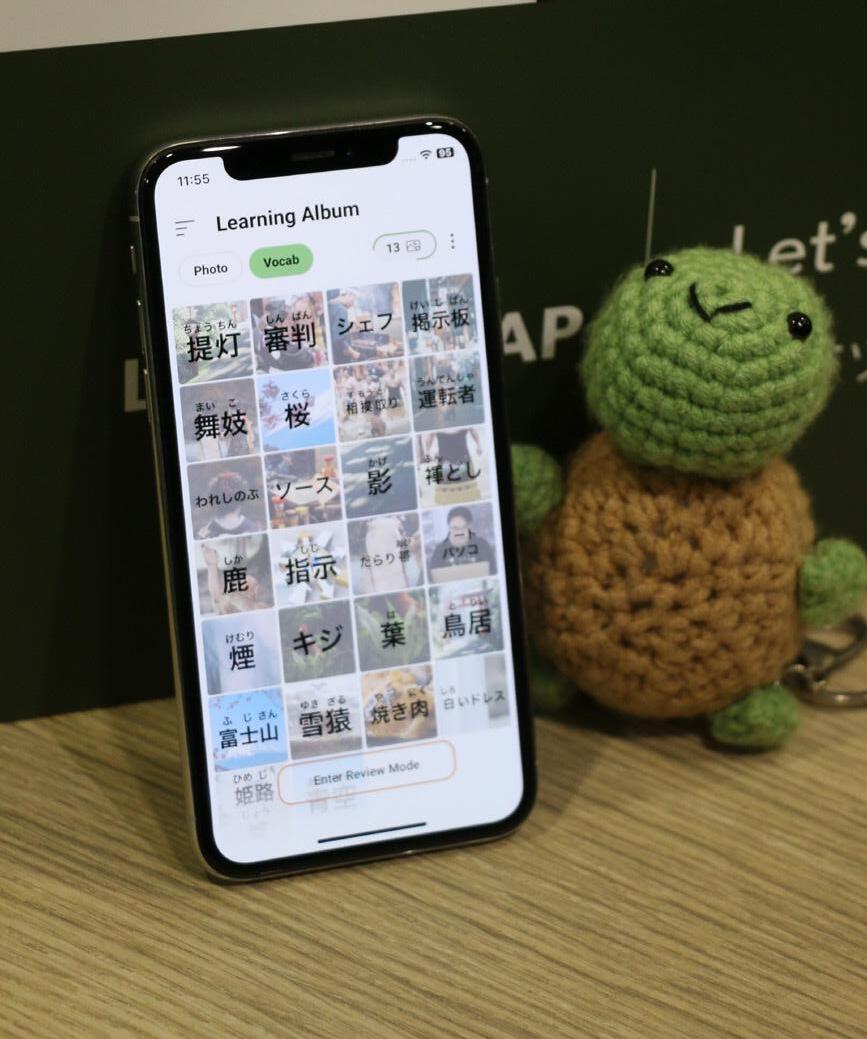
Lingosnap’s learning album stores images and vocabulary, making it easy for users to review and reinforce their new language skills.
lingosnap.co
Deaf and hard-of-hearing commuters who need help with routes, directions, announcements, or other MRT-related enquiries will soon find it easier to get support, thanks to SiLViA – a new virtual assistant that communicates in sign language. FingerDance, a growing social impact deep tech start-up, is working with The Singapore Association for the Deaf (SADeaf) to break down these barriers for Deaf and hardof-hearing commuters.
Soon, such commuters at Chinatown MRT station will be able to receive directional assistance from SiLViA, the Sign Language Virtual Assistant, at a kiosk within the station, thanks to a partnership between FingerDance and SBS Transit.
Deaf and hard-of-hearing commuters can say or type their queries on the screen, and SiLViA will respond through both spoken and sign language, ensuring that all commuters receive essential information in real time.
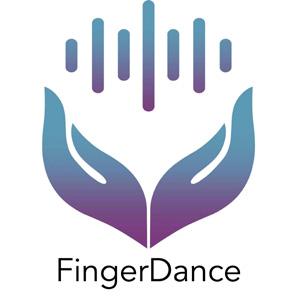
SiLViA is the flagship product of FingerDance, a pioneering Singapore-based start-up co-founded by Gong He, a passionate technologist who was inspired by the challenge of communicating with his Deaf friends.
Created based on FingerDance’s flagship product, “FingerDance Sign LLM”, SiLViA features proprietary Sign Language AI translation and AI avatar technology, offering accessible sign language information services. This product supports natural translation between spoken language and sign language to enhance information and service accessibility for the Deaf and hard-of-hearing communities.
USING AI TO ENABLE ACCESSIBLE AND MORE INCLUSIVE INFORMATION FOR THE DEAF AND HARD-OF-HEARING COMMUNITIES
Realising the limitations of text-based communication, Gong He and other co-founders Zeng Zhen, Xuanqi, Xuanzhuo, and Sunhao embarked on a journey to leverage their technological expertise to bridge this gap.
“We started to think about whether we can use our tech background to do something different. That’s the beginning of the whole journey,” he recalled.
FingerDance’s groundbreaking propriety Sign Language large language model (LLM) generative AI technology is transforming their vision of seamless communication into reality. This generative AI technology uses a diverse collection of real-world sign language data to translate spoken language into sign language.
In order to ensure the accuracy of the LLM, FingerDance is working with The Singapore Association for the Deaf (SADeaf) to integrate Singapore Sign Language (SgSL) into their products. This close collaboration with SADeaf and the Deaf community ensures that native Deaf signers are involved in the development of this product. Their valuable input and feedback is vital to authentically and accurately record the sign language used by the Deaf community. In parallel, FingerDance is working with SBS Transit to co-create and refine SiLViA. Once launched, SiLViA is expected to improve information accessibility in the commuting experience for the Deaf and hard-of-hearing.
Besides trialling SiLViA at Chinatown MRT station to provide travelling information through sign and spoken language to commuters, FingerDance’s AI technology also offers accessible sign language information services for web-text, news, events, and conferences. Supported by the robust core AI model, it ensures continuous technical support and updates to its sign language services, facilitating information accessibility in both the physical and digital worlds.
Bringing their vision into reality proved challenging, especially in achieving product-market fit within a B2B environment. Convincing stakeholders in government and industry sectors required extensive market research
and a clear demonstration of their innovative solutions’ potential impact. The team’s belief in their product eventually paid off, as they successfully navigated these challenges with significant support from the NUS Enterprise ecosystem.

“In the future, we plan to integrate more sign languages in different countries and regions, using our solutions to benefit Deaf people all over the world.” By collaborating with associations and organisations worldwide, they aim to provide a global solution for the Deaf
With AI Sign Language Technology, we are working to bridge the gap between sign language and spoken language, making real-time information and services more accessible for the Deaf and hard-of-hearing communities. Our aim is to build a smarter and more inclusive world with AI.
– GONG HE, CO-FOUNDER OF FINGERDANCE
This invaluable support system provided mentorship, resources, and networking opportunities crucial to their success. Programmes such as the NUS GRIP enabled FingerDance to refine their products and business model, benefiting from insights and collaboration from industry experts.
In July this year, FingerDance was announced to be one of seven startups that will receive funding from a new Technology for Sustainable Social Impact (TS2) accelerator programme established by NUS Enterprise and the Singapore Centre for Social Enterprise (raiSE), which committed USD3.5 million to growing tech-based social enterprise start-ups. The start-up will also work out of the new BLOCK71
Social Impact Hub opened by NUS Enterprise, a dedicated space for purpose-driven ventures to further develop their tech-based solutions to solve pressing social issues.
FingerDance has received positive responses for their products during their start-up journey. Companies and end-users look forward to using their products in the future. This feedback not only validates the team’s efforts but also fuels their commitment to continuous iterations. “Every time we get positive feedback during our workshops with different users, it gives us the confidence that our work will be useful for them,” shared Gong He.
and Hard-of-hearing communities, wherever they may be.
The team envisions a future where inclusivity is the norm, and communication barriers are a thing of the past. Their partnership with NUS Enterprise remains pivotal in their growth strategy, facilitating access to new markets, potential investors, and a supportive entrepreneurial community.
FingerDance is a trailblazer for inclusive communication in Singapore, revolutionising the way the Deaf and hardof-hearing navigate their daily commute. With ongoing support from NUS Enterprise, they are poised to make significant strides in inclusive communication as they expand and innovate.
fingerdance.ai
Lingosnap and FingerDance are more than just AI-forward companies; they are creating tools to empower and transform communication. By revolutionising traditional methods and breaking down barriers, these innovative start-ups are paving the way for a future where communication is inclusive to the needs of the user.

In this issue, we shine a spotlight on four startups that are making strides in developing technologybased solutions in education and food. By offering products and solutions that boosts learning or improves digestive health - or both - these trailblazers are helping to create a future where education solutions and healthy food choices are made more inclusive and accessible to people with different needs.

Get ready to power up your brain with the ultimate game-changer in STEM education.
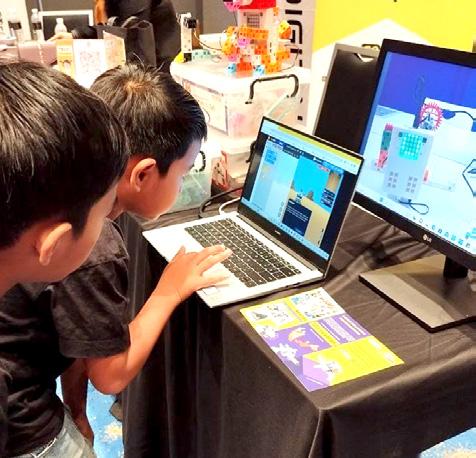

GoTechUp is an education solutions provider on a mission to help educators gain confidence in delivering foundational Science, Technology, Engineering, and Mathematics (STEM) skills that students need to adapt in this technology-driven century.
Their flagship gamified robotics simulation software turns learning into an adventure game. Students dive into interactive challenges that level up their robotics and programming skills, while building critical thinking, logical reasoning and problem-solving capabilities as they navigate through quests and puzzles.
GoTechUp is a social enterprise start-up under the Technology for Sustainable Social Impact (TS2) accelerator programme by NUS Enterprise and the Singapore Centre for Social Enterprise, raiSE. gotechup.org
Hegg is at the forefront of the plant-based revolution, offering delicious, egg-free alternatives that are not only good for the planet but also for your health. Rich in plant proteins and free from cholesterol, their product helps you whip up innovative recipes such as the Portuguese ‘egg’ tarts and okonomiyaki.
Perfect for those passionate about food sustainability or simply looking for a nutritious start to your day, Hegg is proving that you don’t have to compromise taste or health for sustainability. Hegg is created by Hoow Foods, formerly incubated at NUS Enterprise@ Singapore Science Park.
hoowfoods.com
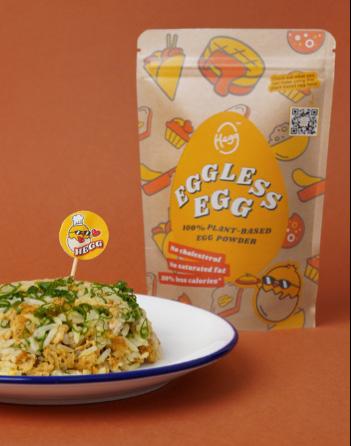


MADCash (Multiply Assist Donate Cash) is transforming financial education and support by tackling the unique challenges faced by female entrepreneurs in Southeast Asia, where many women-run micro-small-and medium-sized enterprises (SMEs) businesses face exclusion from traditional financial services. Operating unregistered businesses or dealing with poor credit, these women often experience significant financial instability and the mental toll that comes with it. MADCash bridges this gap by offering Shariahcompliant microfinance solutions and financial literacy education. Through zero-interest microfinance loans, MADCash empowers women to stabilise and grow their businesses, alleviating the pressure of financial uncertainty and helping them build a more secure future for themselves and their families.
MADCash is a social enterprise start-up under the TS2 accelerator programme. getmadcash.com
Boost VitaliTEA combines the ancient wisdom of Traditional Chinese Medicine (TCM) with modern-day wellness needs, offering a range of functional teas designed to support both mental and digestive health.
Their signature blends of Lavender TranquiliTea
and Rose NeuroHarmony are crafted to calm the mind and soothe the gut, promoting a balanced state of well-being. Whether you’re looking to enhance focus, reduce stress, or improve digestion, Boost VitaliTEA’s carefully curated teas are your perfect companions on the journey to holistic health.
Boost VitaliTEA was supported by THE HANGAR and the NUS Venture Initiation Programme (VIP). boostvitalitea.com


GreenCOP successfully inaugurated its pre-commercial biofuels production plant in Johor, Malaysia recently. This event marked a significant milestone for the start-up, which is part of PIER71 and the NUS GRIP programmes.
This momentous event is highlighted during InnovFest 2024, a premier platform for showcasing innovations and fostering technological advancements.
Strategically located at a palm oil mill site in collaboration with Malaysia’s IOI Group, the plant is designed to process a ton of biomass daily, focusing on enhancing the efficiency and scalability of GreenCOP’s proprietary process of converting plant-based biowaste from IOI’s palm oil plantations into sustainable biofuels.
GreenCOP aims to produce its first tonne of sustainable biofuels by the third quarter of 2024.
Dr. Hanson Lee, CEO & Co-founder of GreenCOP, expressed his excitement about the plant’s launch, stating, “The initiation of our pre-commercial plant marks a pivotal moment in our journey. It not only validates our technology but also brings us closer to commercialscale production.”

Cellivate Technologies
Secures $1 Million in Funding to Advance Biotech Innovation s
Cellivate Technologies, a pioneering biotech startup and part of the NUS Enterprise ecosystem, has successfully secured $1 million in a funding round. The round was led by Antler, with participation from Venture Catalysts and other strategic investors. This investment will play

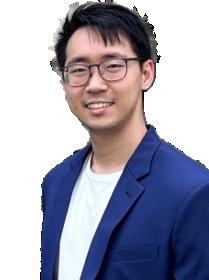
a crucial role in accelerating the development and commercialisation of Cellivate’s innovative cell culture technologies, which are poised to revolutionise cell growth and efficiency in biomedical research and therapeutic applications. With this funding, Cellivate aims to scale its operations and expand its product offerings, further solidifying its position as a key player in the biotech industry. The funding marks a significant milestone for Cellivate as it continues to innovate and make strides in advancing healthcare solutions.
Beep Technologies Closes $3.3 Million Pre-Series A Round to Drive IoT Expansion
Singapore-based IoT start-up Beep Technologies has successfully closed a $3.3 million pre-Series A funding round, marking a significant milestone in its growth journey. The round saw participation from prominent
investors, including Farquhar Venture Capital, Granite Asia, and M7 Ace Neo. This fresh injection of capital will enable Beep Technologies to accelerate the development and deployment of its innovative IoT solutions, which are designed to streamline and enhance connectivity across various industries. With this funding, Beep is well-positioned to scale its operations and expand its market presence, further solidifying its status as a leading player in the IoT space.

NUS FoodTech Challenge 2024 sets new record with 363 students participating
Congratulations to Goldies and KawanDaun, winning teams of the NUS FoodTech Challenge 2024 local and international tracks respectively. Jointly organised by NUS Enterprise, the NUS Department of Food Science & Technology and the NUS Food Science & Technology Society, this year’s event saw unprecedented sign-ups, with 363 students forming 88 teams in total.
Local winner, Goldies developed a protein snack ball made with honey-fermented turmeric, upcycled wheat bran, and germ for a healthy boost. The team has now decided to develop Goldies further and will enter Incubation @ THE HANGAR. Goldies was also
awarded a green lane opportunity to pitch at the NUS Venture Initiation Programme - Impact Award. The international winner, KawaanDaun from IPB University, Indonesia, formulated a fermented coffee leaf tea beverage with fruity, tropical flavours with enhanced nutrition.
To recap past NUS Enterprise events and stay apprised of those upcoming, please refer to the following QR code.


We live in an age of “want it now, need it now” – from two-day shipping to endless entertainment options at our fingertips. This culture of instant gratification can be a double-edged sword for entrepreneurs. The exposure to these overnight sensations and viral businesses can fuel a “get rich quick” mentality. However, the reality of running a sustainable business is not as glamorous or easy as is commonly portrayed to the media.
The ability to set your own schedule is a major draw for many aspiring entrepreneurs. While it offers freedom, it also comes with a significant amount of responsibility. Unlike a traditional 9-to-5 job where you have a defined role, entrepreneurs often wear multiple hats. They are the CEO, marketing manager, salesperson, and customer service representative rolled into one. This can be incredibly demanding, blurring the lines between work and personal life.
In the initial stages, most of the money a business earns will likely be reinvested back into the venture. Funds may be channelled towards marketing, sales, product development or hiring talent, all of which play a crucial part in attracting customers and staying competitive.
Entrepreneurs must be prepared for a delayed financial gratification as well. While they may be pouring their heart and soul into the business, significant personal income might not be available for a while. This highlights the importance of having a strong financial safety net during the initial stages.
The media often portrays entrepreneurship as a linear path to instant recognition. The truth is - success takes time and many adjustments. Entrepreneurs need to be comfortable with experimentation and constant improvements.
Success can only be found through embracing a culture of constant development, testing different variations of their product or service and continuously refining it based on customer feedback and market trends.
Scrub Daddy is one such company that shatters the illusion of instant success. Their “Shark Tank” fame might suggest overnight victory, but the reality is far more complex. Aaron Krause, the founder, built years of experience as the owner of a car washing business before the core idea for the sponge even sparked. The product itself underwent experimentation and refinement, only to be shelved initially. It was only through a chance rediscovery three years later that Krause recognised its broader potential.
After securing a patent, he invested $75,000 in production and got on the weekend front-page business feature in The Philadelphia Inquirer. He then made two successful appearances on QVC’s shopping channel, where Scrub Daddy sold out within eight minutes.
While Krause’s technical knowledge, industry connections, and previous entrepreneurial success undoubtedly played a defining role behind establishing Scrub Daddy, his journey still highlights the dedication, perseverance, and strategic decision-making that paved the way for the brand’s success today. A stark contrast to the unrealistic image of instant fame and fortune often associated with their appearance on Shark Tank.
While the road to success is not an easy one, aspiring entrepreneurs in Singapore have a wide range of resources at their disposal. Government


initiatives and support programmes can help turn innovative ideas into thriving businesses. From mentorship programmes offered by incubators to funding opportunities through grants, Singapore fosters an environment that encourages entrepreneurship.
While embarking on an entrepreneurial journey requires dedication and hard work, the good news is you don’t have to go down the road alone. NUS Enterprise has a vibrant ecosystem of support services and startup accelerator programmes specifically designed to bridge the gap between innovative ideas and successful businesses.
Find out more about the NUS start-up runway here: enterprise.nus. edu.sg/supporting-entrepreneurs/nus-startup-runway/


Join us and register for your free trade pass: tickets.switchsg.org/ SWITCH2024

Connect with over 300 pioneering start-ups and meet our Ecosystem Development teams from BLOCK71, THE HANGAR, NUS GRIP, PIER71TM , CyberSG Talent, Innovation and Growth (TIG) Collaboration Centre, Gen AI Accelerate programme, Pathways by BLOCK71, Innovation with Societal Impact and more.
Build your network with over 20,000 attendees including industry leaders from healthcare, biomed, manufacturing, connectivity, green tech, sustainability, AI, and deep tech.
Participate and glean insights from founder-focused discussions, market access sessions and industry conferences, while learning about the latest in innovation at tech showcases.
Do not miss this opportunity to gain insights and drive your business idea forward.
